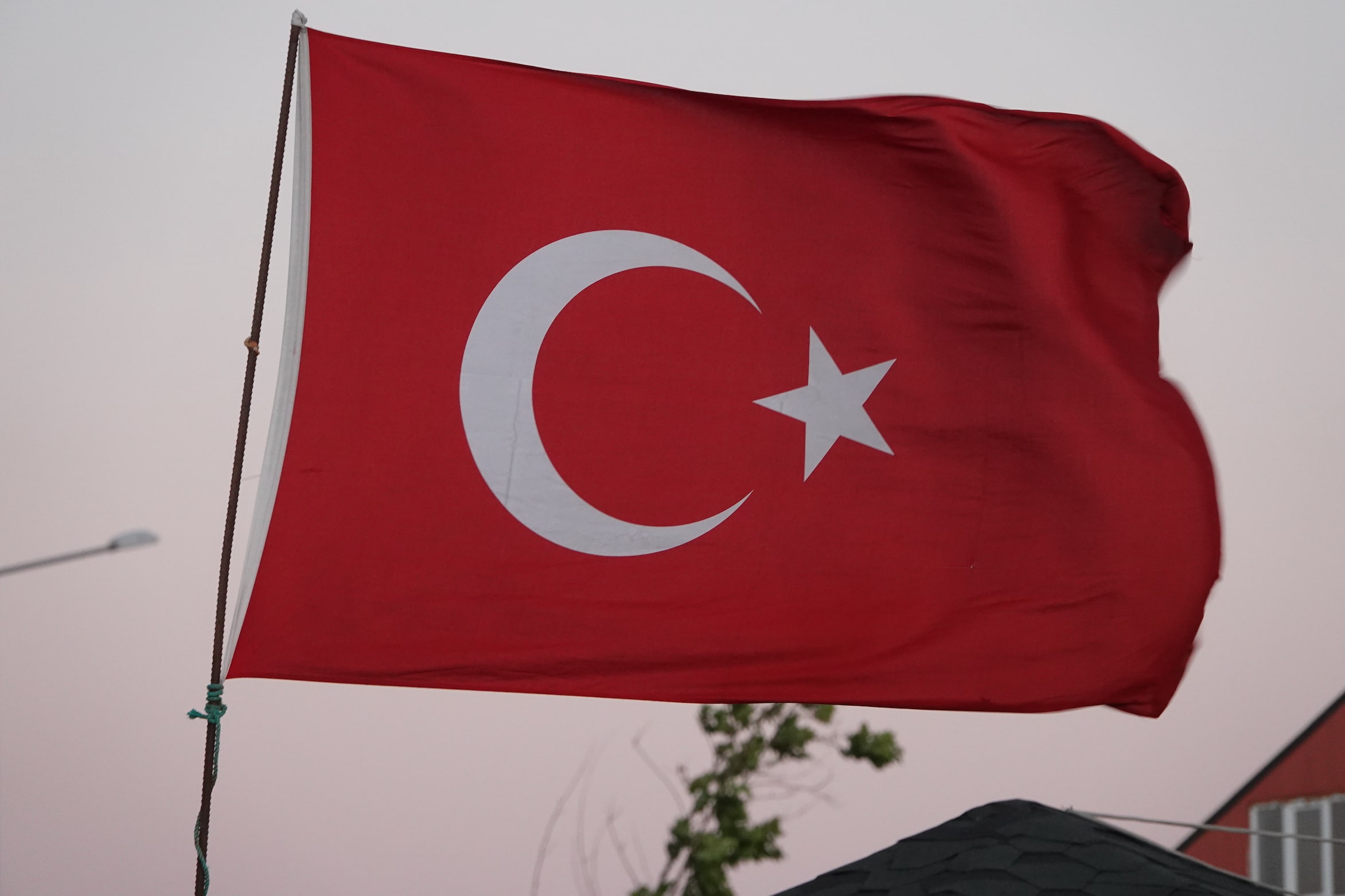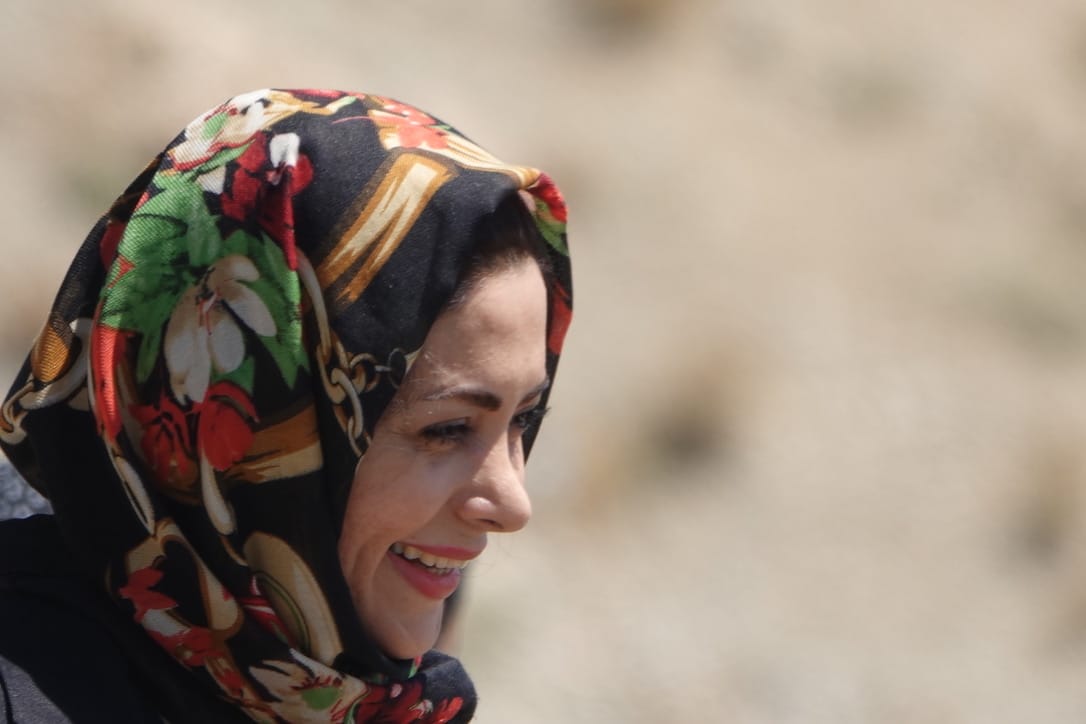Anatolia and Covid
Share This Article
D on saturday July 23 to Wednesday August 3, from Trabzon to Dogubayazit, near the Iranian border
tea culture
After a good rest in Trabzon and our visas for Iran in hand, we are off again towards the Iranian border, via the plateau of Anatolia.We are leaving town in insane traffic this Saturday, July 23. After a few tens of kilometers we leave the seaside to sink towards the interior of Turkey. We cross an area where tea is grown, the national drink of the country. The fields are on the mountainside and many people are busy picking up tea leaves. We share a few moments with pickers before continuing our journey on an axis with little traffic but with real difficulty, crossing tunnels without lighting. Sunday evening we will stop at the foot of the Col d’Ovit in the small village of Ikizdere.
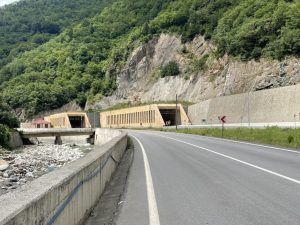
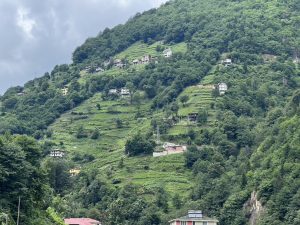
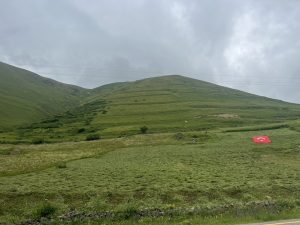
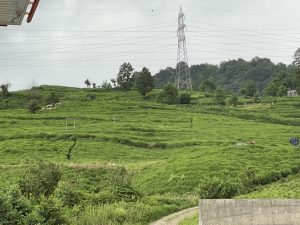
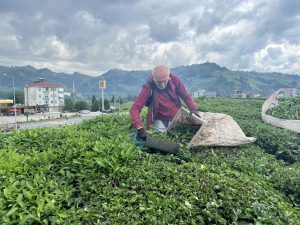
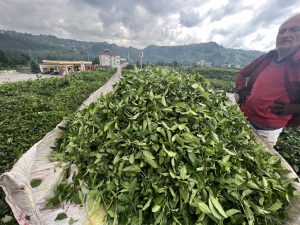
The smell of the barn
This Monday morning we attack the climb of the Col d’Ovit, 35 kms for 2000 m of elevation gain. The first part climbs at a fairly steady pace in a natural setting. At the 25th kilometer surprise a tunnel of 14 km, to avoid it we choose to take a mountain road with a difficult climb, the slope is between 10 and 13%. It will take us 3 hours to reach the summit, in the fog and a temperature close to 0°C. Despite our warm clothes we are cold. Ecevit and Elmas a farmer couple welcomes us to their farm. They prepare a gargantuan meal for us (tomatoes, cucumbers, mutton, fries, cheese, tea, honey, jams, butter, bread). We will sleep in a room located above the barn, as the floor is not waterproof this has some olfactory disadvantages, but on the other hand we benefit from the heating produced by the cattle.
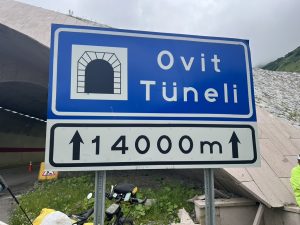
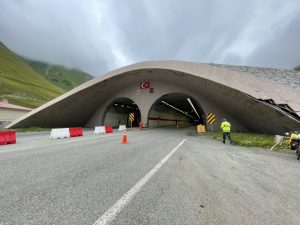
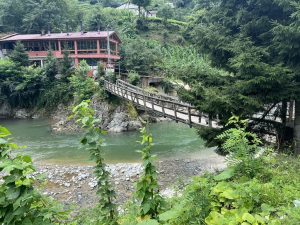
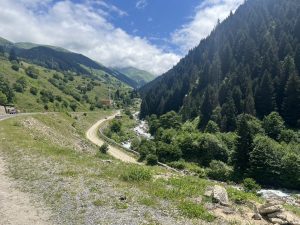
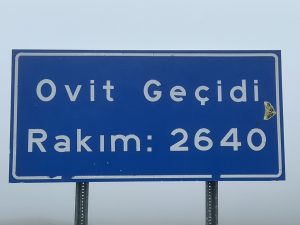
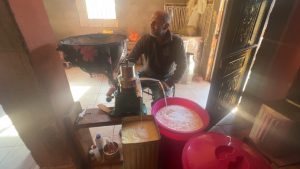
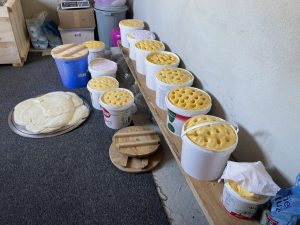
The valley
Tuesday, after a very calm night, we leave our hosts who, before leaving, offer us a magnificent local breakfast. This morning the fog has disappeared and the view of the valley from the pass is sensational. In winter this region is totally covered with several meters of snow.
Unlike the day before, the day is easy, we have a long descent of 34 km on a road that alternates bitumen, dirt and tunnels, and there is almost no traffic. We cross sparsely populated areas, the few people who live there live in fairly precarious housing. We will end our day in a small village where, as everywhere, the population takes care of us.
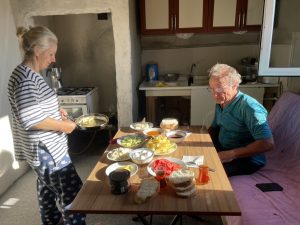
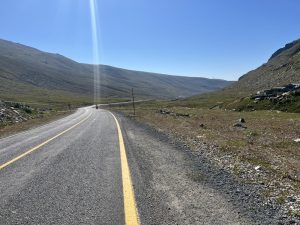
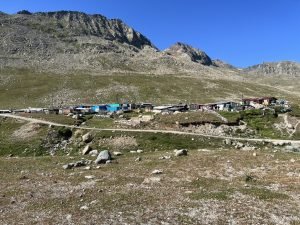
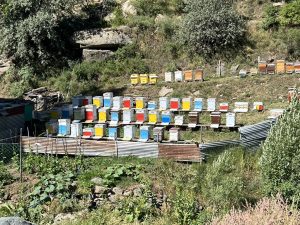
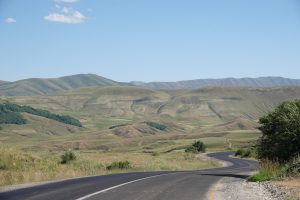
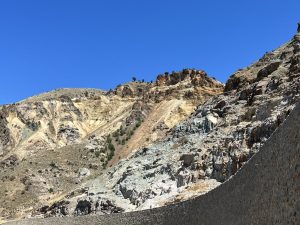
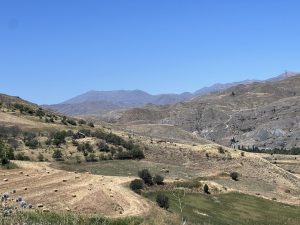
Anatolia and bears
Wednesday 27, today we are on the Anatolian plateau located at 2000m. Despite the altitude it is 35°C. You have to open your eyes to enjoy the show, a postcard setting. An almost uninhabited area where it is very difficult to find accommodation or a place to camp. The few people we met confirmed the presence of bears and advised against camping. The region is conducive to the production of honey, there are beehives everywhere. Finally we meet Alperen, he welcomes us to Rizeken in his village and offers us accommodation for the night. We sleep in a place of prayer on carpets. In this village life seems very rudimentary and without comfort, but the kindness of the inhabitants is invaluable.
We will leave Alperen in the early morning to reach Erzurum for a short break. The town is connected to a ski resort, Palandoken. Here you can ski up to 3200m on the Anatolian plateau.
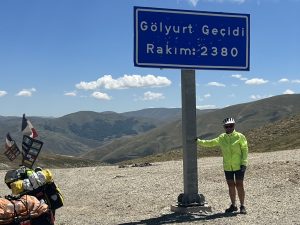
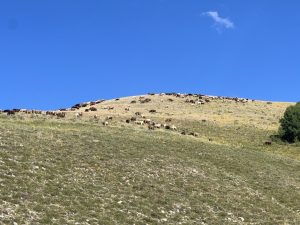
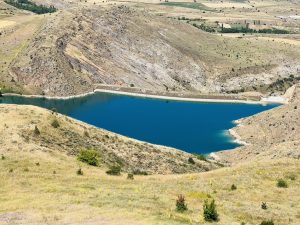
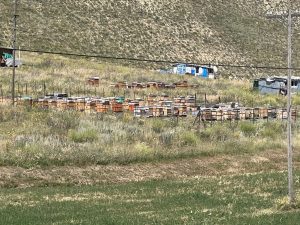
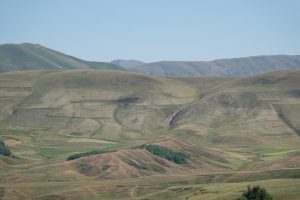
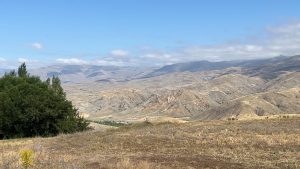

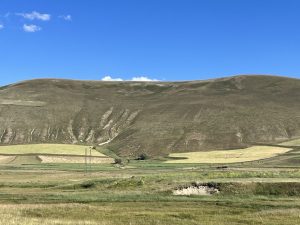
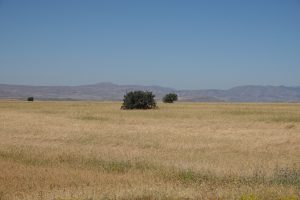
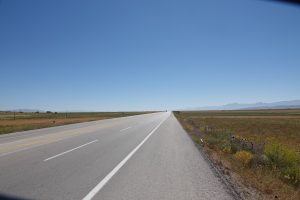
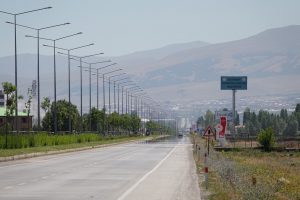

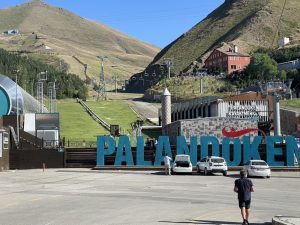
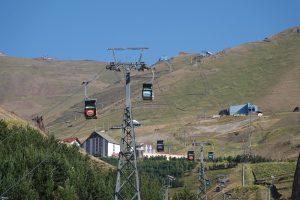
A little change
After this short break, we resume our journey towards the Iranian border. It is very hot, regularly 40°C and the roads are endless with their long straight lines but little traffic. You have to be careful and bring enough water, because the supply points are quite rare and the few towns are quite distant from each other. As always we are really very well received, such as at Eleskirt where the number of invitations is such that we could have eaten 5 times in the afternoon.
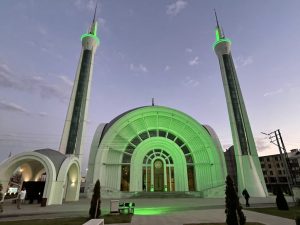
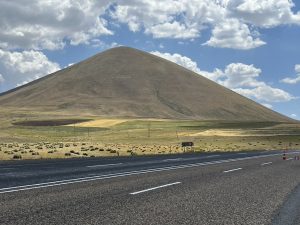
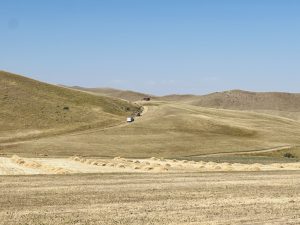
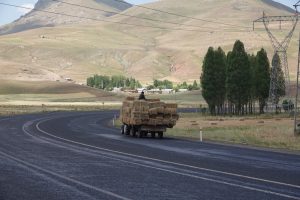
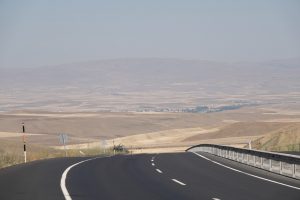
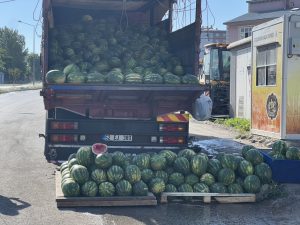
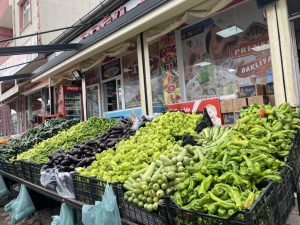
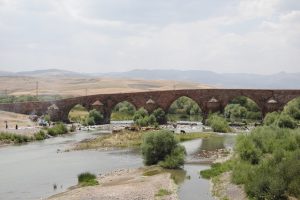
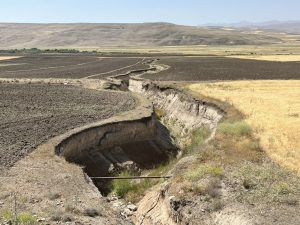
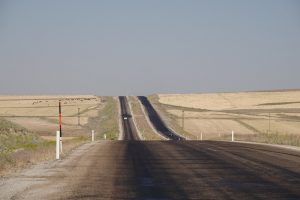
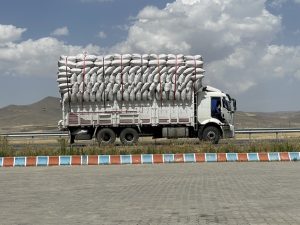
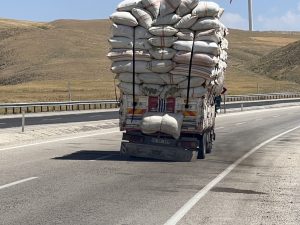
Iran, Noah’s Ark and Covid
Finally after four days on the Anatolian plateau, on Tuesday August 2, we reached Dogubayazit, the last town before the Iranian border. A city located in the middle of nowhere near Mount Ararat, the mountain where Noah according to legend would have stranded. It culminates at 5135m and its summit is covered with eternal snow. In Dogubayazit the population is Kurdish and we sometimes feel during our conversations, the political malaise of this people who are not officially recognized in Turkey. Moreover, in the fairly recent past, speaking in Kurdish was punishable by imprisonment. Visit of the magnificent Ishak Pasha Palace built on the old Silk Road and located a few kms from the city.
Before leaving we will try to treat ourselves because we have all the symptoms of Covid, but here there is no test to check. In a few days if all goes well we will be in Iran.
Do not miss our next article a few minutes zapping on Turkey.
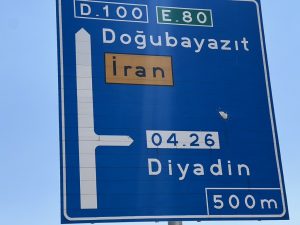
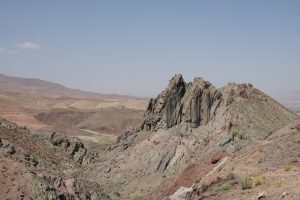
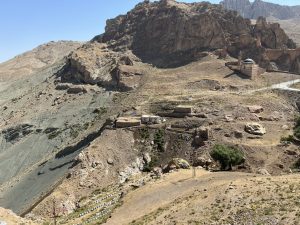
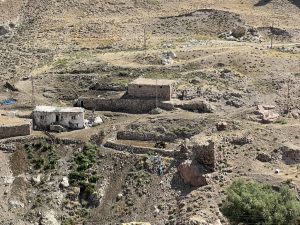
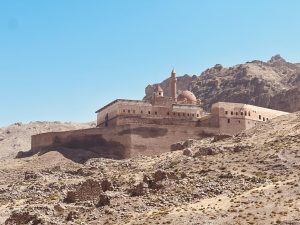
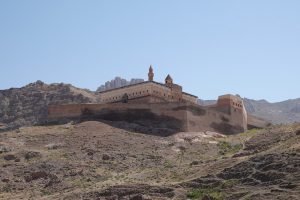
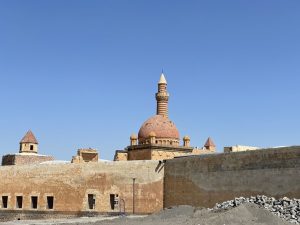
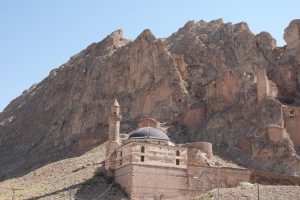
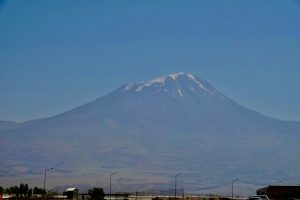
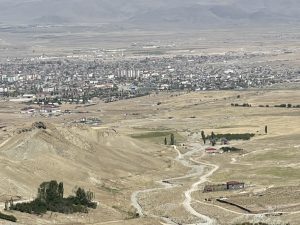
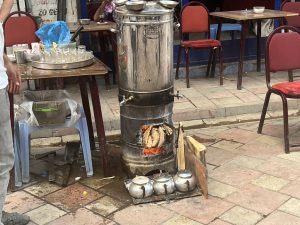
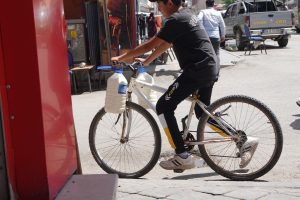
Did you know
Tea is the national drink and the Turks consume very large quantities of it.
the 20 million Kurds who live in Turkey live in the East of the country, officially this people is not recognized in Turkey.
Met
- Ecevit, his wife and children the farmers who hosted us
- Alperen and his mother who hosted us at Rizeken
- Javis and Gunta a biker couple from Latvia
- Many Franco-Turks encountered Eleskirt
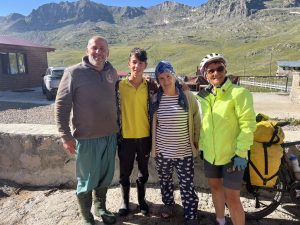
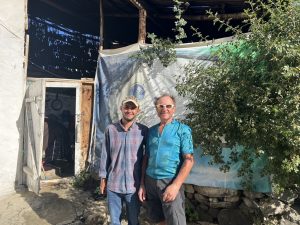
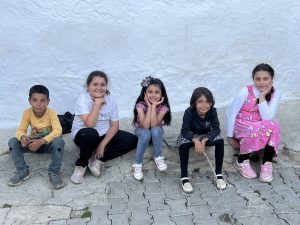
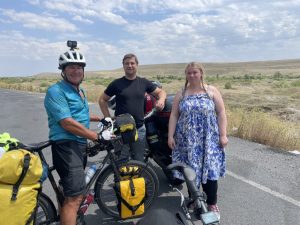
Where are we
During these 13 days we traveled 612 kms.
You can find the route on the attached map.


